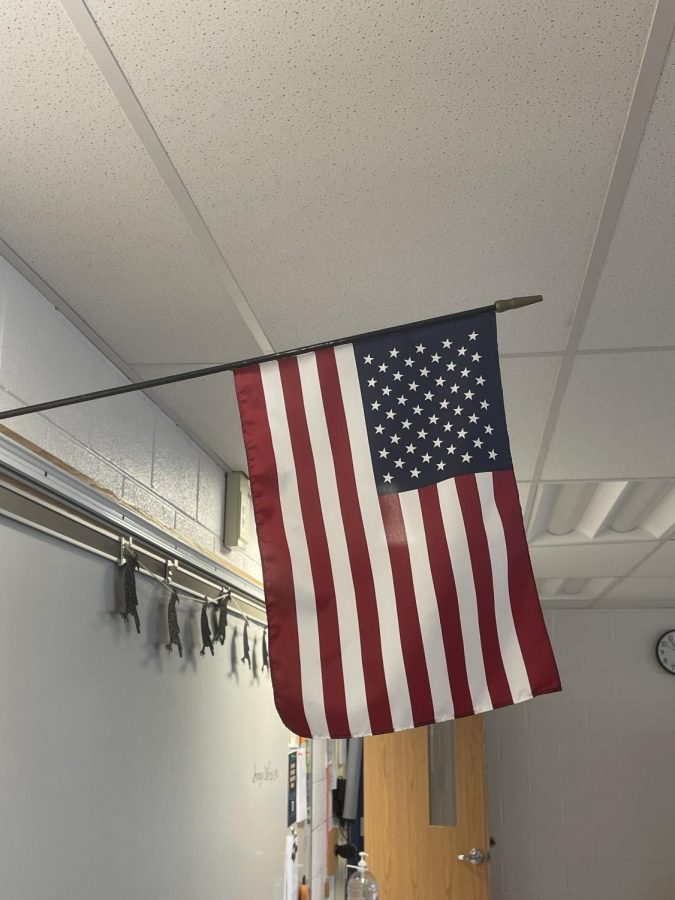I pledge allegiance to… whom, exactly?
Photo courtesy of Emma Goldkopf
The flag to which so many stand for each morning and the combination of stars and stripes that represent a nation that is supposed to be equal.
October 28, 2021
The Pledge of Allegiance has been a part of American school systems since 1892, but not all students seem to be standing for it.
Francis Bellamy originally wrote the pledge as a marketing tagline for the country’s then largest magazine, Youth Comparison. The original sentence read: “I pledge allegiance to my flag and to the Republic for which it stands—one nation indivisible—with liberty and justice for all.” The phrase has since been modified, and the controversial phrase “under God” was added by former president Dwight D. Eisenhower in 1954 to foster a sense of national unity in the midst of the Cold War and communist scares.
“I stand for the pledge because I feel like it’s more of a problem if I sit and I just don’t want all that attention on me, but I don’t put my hand over my heart. It’s mostly just for peer pressure,” said junior Bree Tiago.
From 8:10 a.m. to 2:55 p.m., patriotism is nearly non-existent, besides sports games where the “friday night lights” are the perfect source for it.
“I wouldn’t say that people are uneducated [since] there’s nothing wrong with being patriotic, but those people that chant ‘USA’ have patriotism that comes out of nowhere,” said junior Rikki Evans.
Children in America start learning the pledge when they are mere kindergarteners who have yet to recite the ABCs and count to 10, but students are never taught why they have to say it in the first place. What is the significance of those 31 words, where did they come from, and why is it something we have to say every morning?
“When I lived overseas, I went to a Japanese international school. I never had to learn anything, let alone a pledge, but then I came back [to America] and the pledge happened and there was this girl that said ‘you have to stand up’ and I was like why, why am I doing it?” said Evans.
If changing the pledge could make more students stand for it, it’s certainly possible that it could happen. Since 1892, the Pledge of Allegiance has been tweaked five different times, but that raises the question as to what really needs to be changed.
“I think it’s more about changing what’s going on in the country and not words, because words mean nothing if actions don’t represent them,” said Tiago.
Along with the traditional pledge, there is also a pledge that exists for the Black community.
“There’s a pledge, I don’t know a lot about it, but there is a pledge/[song] that Black people say, because out of slavery, Black people felt that the national anthem did not represent them, so they wanted to make their own pledge to make them feel like a community that they were one, just like the [national] pledge is supposed to [do],” explained Tiago.
The concept of liberty and justice for all is something that this country has been struggling with since the Declaration of Independence was written in 1776. These ideals have been ruthlessly fought for with various movements such as Black Lives Matter, Stop Asian Hate, and Me Too. America, however, remains split between its patriotism and the truth.
“If you believe that everyone is equal, you’re living in ignorance,” said Tiago.





